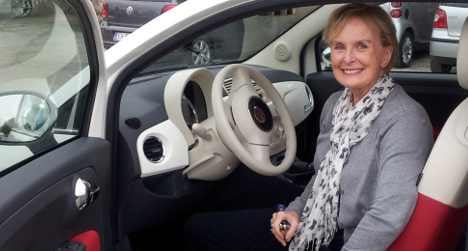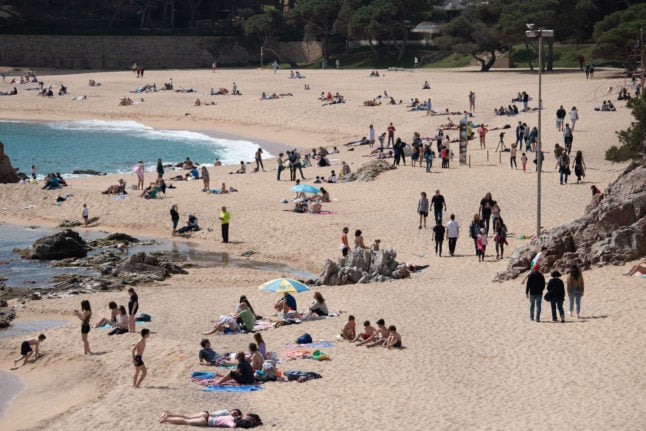How did you come to live in Italy?
I wanted to retire here. I’d always loved Italy. I used to come once a year, then I started coming two or three times a year, exploring the cities and the hinterlands.
Did Italy meet your expectations when you moved?
It’s very different living here to travelling around.
The process of buying a house was big and hefty; there’s a lot of bureaucracy.
Before I got residency I had to produce my passport everywhere, even to pick up a package at the post office. It’s just another world.
But the bureaucracy has a reason and it works very well; I’m very happy about it!
How did you decide on the Euganean Hills in the Veneto region?
I spent a lot of time in the region with my parents; we used to visit Lake Garda every year and I would get on the train and head to Venice, Vicenza and elsewhere.
The Hills are a national park and I was incredibly lucky to get a house here. There are lots of lovely walking trails and canals; the views down the valley are stunning, yet I’m in Padua in less than 20 minutes.
In the Veneto the infrastructure is superb, the trains are always on time.

Were there any big hiccups?
Getting my furniture over from Ireland. Two boxes of crockery and lamps were broken in the process and the movers denied breaking anything. Insurance is phenomenally expensive and it cost thousands to move everything, even uninsured.
When I arrived I signed up to a 36-month phone contract, only to find out the company had no phone signal in my house. It was a complete waste of money!
Did you have any help arranging everything?
Yes, it’s very important to find someone who can give you a hand when you get here. I was recommended a lady to help and she’s done all sorts of things such as arranging rubbish collection from the council, the account with the gas company, etc.
I also found it important to get a lawyer who speaks English who could guarantee having my house contract translated.
Have you been learning Italian?
Yes. I went to night classes in Ireland, but when you get home it all goes out of your head.
There’s nothing quite like total emersion, but I’m afraid I’m going to end up speaking Venetian dialect!
How are you getting on with the locals?
I find everyone so kind and friendly, my neighbours have been an incredible help. I’m a woman on my own so they’re keen to help me.
I know everybody now and we had aperitivo together in the summer.
I also love all the little Italian formalities, they’re so sweet. I couldn’t be happier!
How else have you been settling in?
I bought a Fiat 500, it’s so exciting! It’s like a panna cotta on wheels; it’s white with red upholstery.
I’ve never had such a small car before; I’m thrilled with it. I’m living my dream!
How will you be passing the time in Italy?
I’m writing two books. I’m into the final chapters of one, which is an interior design handbook. Then I’ll be writing one about travelling.
What advice do you have for others thinking of buying a property in Italy?
You can’t do enough research. I spent three to four years researching before I bought my house; every night looking at all the properties in all the regions.
Be prepared for a lot of disappointments; I saw at least 80 properties over a three year period.
Write down the things that are most important to you in the property you want.
It depends on your age group. Being on my own and over 60, I needed somewhere convenient with good infrastructure.
If you’re going to get a place on your own you have to think about human contact, particularly if you’re moving to another country. I can sit out in the evening and there are people around; I wouldn’t have that in many places.
Don't miss a story about Italy – Join us on Facebook and Twitter.



 Please whitelist us to continue reading.
Please whitelist us to continue reading.
Member comments